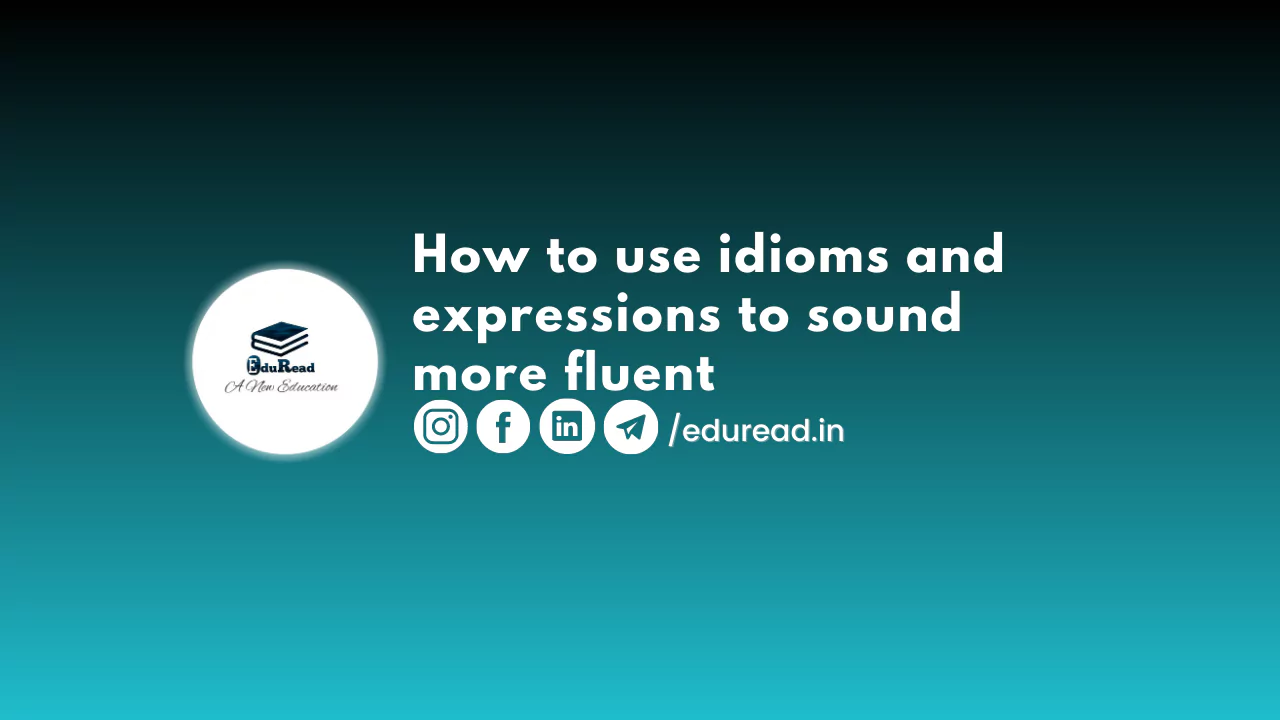Learning a new language can be challenging, but mastering idioms and expressions can make you sound more fluent and natural. Using idiomatic expressions can help you communicate more effectively, add depth and color to your speech, and help you better understand native speakers. In this blog post, we’ll discuss how to use idioms and expressions to sound more fluent.
What Are Idioms and Expressions?
An idiom is a phrase whose meaning cannot be understood from the literal definition of the words used. Expressions are phrases that have a figurative or non-literal meaning. Idioms and expressions are an essential part of any language, and learning them can help you communicate more effectively with native speakers.
Why Use Idioms and Expressions?
Using idioms and expressions can help you sound more fluent in the language you’re learning. They can also make you sound more natural and add color to your speech. Furthermore, idioms and expressions can help you better understand native speakers and their culture.
How to Use Idioms and Expressions
- Study and Practice: The first step to using idioms and expressions is to learn them. You can do this by studying them in a textbook or online, or by watching movies or TV shows in the language you’re learning. Practice using them in context by speaking with native speakers or writing sentences using idioms and expressions.
- Know the Context: It’s important to understand the context in which an idiom or expression is used. Be aware of the situation and the people you’re speaking with. Some idioms and expressions are more appropriate for informal conversations, while others are more suited for formal situations.
- Use Them Sparingly: Don’t overuse idioms and expressions. They are best used to add color to your speech and make it more natural, but using too many can make you sound unnatural and awkward.
- Pay Attention to Tone: The tone of your voice can greatly affect how an idiom or expression is perceived. Be aware of the tone you’re using when speaking, and adjust it accordingly.
- Practice Listening: Practice listening to native speakers using idioms and expressions. This will help you understand the context in which they are used and give you a better idea of how to use them yourself.
Common Idioms and Expressions to Sound More Fluent
- It’s a piece of cake: This idiom means that something is very easy.
- Let’s hit the road: This expression means that it’s time to leave or start a journey.
- Break a leg: This idiom is used to wish someone good luck.
- Keep your chin up: This expression means to stay positive and not give up.
- The ball is in your court: This idiom means that it’s up to you to make the next move.
- I’m all ears: This expression means that you’re listening carefully and interested in what the other person has to say.
- Bite the bullet: This idiom means to face a difficult situation with courage.
- It’s not my cup of tea: This expression means that you don’t like something.
- A dime a dozen: This idiom means that something is common or easy to find.
- Back to the drawing board: This expression means that it’s time to start over and try again.
Conclusion
In conclusion, using idioms and expressions can help you sound more fluent in the language you’re learning. By studying, practicing, and using them sparingly and appropriately, you can communicate more effectively, add color to your speech, and better understand native speakers. So, start practicing today and soon you’ll be using idioms and expressions like a pro!
Follow Us for more such content to improve your speaking skills:
To know more, check out here: https://eduread.in/other-ways-to-say-i-want-to-speak-new-york/
And visit us for more.

Thanks a lot for the post.Much thanks again. Want more.